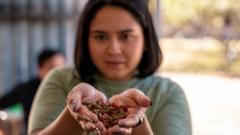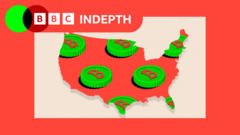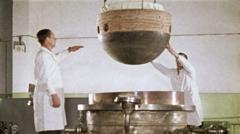Hugo Daniel Chávez, a 27-year-old project manager at Sustenta Honduras, is revolutionizing how used cooking oil is perceived in a nation known for its deep-fried delights. Instead of viewing it as just waste, Chávez sees potential, declaring, "We have so many businesses and domestic practices that create waste, so we are trying to transform waste and give it a second life." This visionary approach addresses health concerns stemming from the overuse of cooking oil, which can generate harmful compounds, and offers environmental relief—discarded oil can severely pollute water systems if not properly managed.
Sustenta’s innovative strategy was born from prior attempts to produce biodiesel from cooking oil, a project that faltered due to a lack of market for biodiesel in Honduras. "So we decided to produce products that can do well in our domestic markets," explains Ricardo Pineda, executive director of Sustenta. The organization now converts cooking oil into soap and dog food, offering local businesses around 2.50 to 3.50 Lempiras (about £0.08 to £0.11) per pound for their used oil.
The impact has been significant; Sustenta recently gained international recognition after winning a $20,000 prize from the 2023 Youth4Climate Energy Challenge, highlighting the project's innovative, socially impactful approach to sustainability. Funding from The Netherlands Embassy has supported their initiative, emphasizing the organization’s contribution towards a circular economy that not only mitigates climate issues but empowers youth and women—communities significantly affected by climate change.
Adding to their triumph, Sustenta secured a contract with Walmart to ensure a constant supply of cooking oil for their operations, a partnership that reinforces the organization's mission. The oil is processed through saponification, a chemical reaction that transforms fats or oils into soap. Each month, Sustenta generates over 106,000 Lempiras (£3,194.70) in revenue from their soap-making project alone.
Composed mostly of individuals under 30, the team at Sustenta embodies a vibrant spirit of innovation and determination. Their proactive stance stands in contrast to traditional environmental initiatives often centered around resistance to destructive practices. As project coordinator Paola Acevedo clarifies, "This type of environmentalism is very important, but we aim to focus on solutions while others hold the line."
Ultimately, Sustenta highlights a bright future for green entrepreneurship in Honduras, pioneering a remarkable shift in how waste can not only be managed but transformed into opportunities for economic and environmental advancement.






















